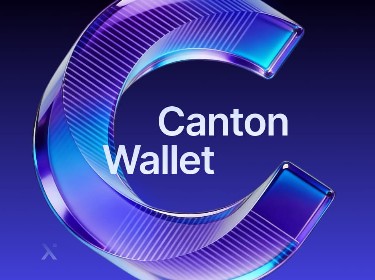If you have been heavily involved in the world of DeFi and crypto, you are in all probability well aware of the crypto staking phenomenon. But did you know that NFTs can be staked too, enabling businesses and individuals to generate passive income?
Non-fungible tokens have been on a rollercoaster ride, and their total sales have significantly fluctuated.
However, no one can deny that NFTs are here to stay. Even at such a challenging time, they continue to pique the interest of a growing number of businesses and individuals worldwide.
The number of NFT use cases and applications has been growing exponentially, and we can see how NFTs have been successfully implemented in many different areas, including fashion, supply chain, and real estate.
On top of that, NFTs, just like crypto, can be staked, which means that their owners have the chance to make an additional return on their investments.
But what does the NFT staking process look like and is it actually a good idea to stake NFTs?
Check out this article to find the answers to these questions and delve into the details of NFT staking.
What is NFT staking really?
NFT launchpad development company empowers NFT holders to lock up their NFT assets on trading platforms and generate passive income while retaining full ownership of their NFTs.
With NFT staking, a user is required to lock up their non-fungible token (e.g. digital art, an in-game item, a video, and so on) on a certain Proof-of-Stake powered blockchain protocol for a set duration of time. In return, the user receives rewards or other privileges (the protocol’s native tokens, governance rights, airdrops, or other NFTs) pre-determined by that very platform where the NFT was staked.
The size of those rewards may depend on various factors, the most common being the annual interest rate, the total number of NFTs that you have locked away, and the duration of the staking period.
How does NFT staking work, and how do you stake NFTs?
The process of NFT staking is identical to that of crypto, and all the functioning principles are more or less the same.
To start staking NFTs, you need to have or install a compatible crypto wallet where your NFTs will be located. Then you choose which NFT or NFT collection you want to stake, send it to a chosen protocol where an NFT will be staked with the help of a smart contract in a liquidity pool, and lock it up for a certain period of time.
Once you have locked up your digital asset on a platform, you will receive certain rewards that are distributed in accordance with the platform’s rules and reward structure.
Although we have admitted above that NFT and cryptocurrency staking procedures bear a close resemblance to each other, an NFT holder needs to remember that compared to crypto, not all NFTs can be staked. All staking platforms and projects have different terms and conditions — that is why an NFT holder has to check in advance whether they can stake their asset on their preferred NFT staking platform.
12 Most Prominent Use Cases of Construction Data Analytics
What Is Federated Learning: Key Benefits, Applications, and Working Principles Explained
Top 10 Real-Life Applications of Large Language Models
Check out this top-notch solution for analyzing NFT collectibles and spotting fraudulent activities
What are the benefits of NFT staking for businesses and individuals?
![]()
For users, the most alluring thing about NFT staking is that it allows them to earn passive income from their digital assets without breaking a sweat or losing control of their NFT.
As well as this, by staking an NFT, it is possible to drive its scarcity and value over time. The reason for this is that an NFT’s value is usually demand-driven. So, if your token has been locked up on a staking platform, it cannot be sold. Consequently, if it cannot be sold, the demand for it may rise and its price will go up.
Another prominent aspect to highlight is that NFT staking paves the way for increased liquidity overall. When more participants stake their digital assets, the entire ecosystem stands to enjoy greater liquidity.
Finally, when staking NFTs, individuals and businesses demonstrate their support for a specific project and help it gain wider traction and grow its community. As a result, this helps drive better engagement and will boost interest in your own NFT.
As far as businesses are concerned, NFT staking provides them with the opportunity to add extra liquidity to their projects and open up new revenue streams, thus enabling them to stay afloat and drive greater user engagement.
To date, several projects have aimed to introduce their audiences to NFT staking functionality. These include NFTX, Polychain Monsters, Band Royalty, and Zookeeper.
On top of that, top games such as MOBOX, Axie Infinity, and Splinterlands rolled out NFT staking in order to encourage their participants with cool rewards and positive experiences.
What are the risks and limitations of NFT staking?
Even though NFT staking offers perks and allows one to earn income, it still has some limitations and may involve certain risks that you need to be aware of.
So, for example, some NFT staking protocols may impose a long lockup period, meaning that you will be unable to unlock your asset and sell it when you wish to. This might be especially disturbing if you see the price of your NFT fluctuating and you are urged to sell it as soon as possible, but you cannot withdraw it from the platform and end up losing money.
In addition to this, if a staking platform experiences either financial or development issues and its founders and the rest of the team decide to quit the project, participants and users may be left with nothing, and their NFTs will not hold any value.
Plus, remember that all NFT staking protocols are still nascent, meaning that they have yet to be tested and prove that they are fully secure.
But in general, if you do thorough research into NFT staking platforms available on the market and familiarize yourself with all the details and specifications of the entire NFT staking procedure, you will in all likelihood avoid any pitfalls along the way and enjoy a positive staking experience.
NFT Launchpad Development: a Comprehensive Guide Based on PixelPlex’s Expertise
What Is POAP and How to Use It Effectively?
How to Ensure Infrastructure Security: Best Practices for Your Business
Is it a worthwhile idea to invest in NFTs and how to do it properly? Find the answers in our detailed guide
What are the future prospects of NFT staking?
Despite the fact that NFT staking has not enjoyed such massive popularity as cryptocurrency staking, it stands to gain wider traction in the future, especially after Ethereum’s successful transition to the Proof-of-Stake consensus mechanism where the mining process has been replaced by staking. Therefore, it is logical to assume that many more solutions will support the staking functionality and that we will see many other NFT staking projects unfolding.
In addition to this, given the instability of the NFT market, not all NFT investors can make millions of dollars from their assets (like Beeple, for instance) and are unwilling to sell them low. That is why they may prefer to stake their NFTs and collections and generate passive income while still owning them.
Is NFT staking platform development a good idea?
![]()
Those businesses that are eager to stay ahead of the curve may consider developing their own NFT staking solution, either for individual NFT collectors or for metaverse-powered gaming where staking has been a hit with players. Plus, you can also carry out research and create an NFT staking platform for other spheres as well. These might include education, esports, and so on.
To deliver a powerful, feature-rich NFT staking platform that will attract users and investors, you will need to carefully think through the detail and minutiae. You will be required to accomplish the following:
- analyze market trends and tendencies
- choose the most appropriate underlying blockchain protocol
- ensure an easy-to-navigate and catchy design
Undeniably, there are many other essential aspects to take into account — so it makes sense to reach out to an NFT development services vendor who will take care of the entire staking platform production cycle.
Closing thoughts
NFT staking has made it possible for NFT holders to generate extra income from their assets and collections without having to sell them, which has allowed it to become one of the best NFT use cases.
Though NFT staking is nascent, it will almost certainly keep on gaining momentum and pique the interest of many more businesses and individuals. As well as this, we have yet to get acquainted with many more sophisticated NFT staking solutions that will empower NFT holders with a myriad of cool opportunities.
If you are eager to develop your own NFT staking platform, reach out to our PixelPlex blockchain specialists for help. With our solid expertise in NFT development, we will assist you in delivering a revolutionary NFT project that will allow you to become a game-changer in your domain.
Disclaimer: The information provided in the article is for educational purposes only. It does not constitute advice or recommendations for embracing or dealing with NFTs and NFT staking or investing in NFT staking platforms. Please seek professional advice before taking financial risks.




